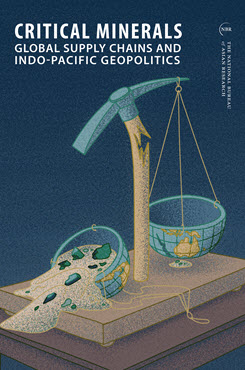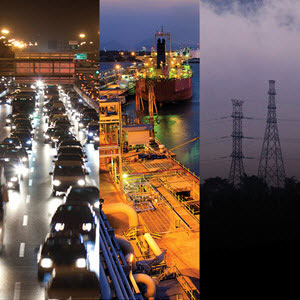Essay in NBR Special Report 102
Geopolitics of Critical Minerals
This essay finds that the supply chains of critical minerals are highly concentrated by a few countries, creating geopolitical issues amid global clean energy transitions.
EXECUTIVE SUMMARY
MAIN ARGUMENT
Several minerals are indispensable to the production of clean energy equipment, such as solar photovoltaic modules, wind turbines, and batteries, and demand for these minerals is expected to increase substantially in the next few decades as many economies deploy clean energy technologies. A review of supply chains (mining, processing, manufacturing, and end use) of six critical minerals (cobalt, copper, lithium, nickel, rare earth elements, and silicon) suggests that the supply chains of critical minerals are highly concentrated, which creates potential economic, energy, and national security risks. Highly concentrated supply chains will also shape the related downstream industries and the future energy mix of many countries. Technological innovation could reduce this concentration and the associated risks, but game-changing innovation is likely several decades away from commercialization. Given the technological uncertainties, increased investment in diverse supply chains is required to ensure an adequate supply of critical minerals in the coming decades.
POLICY IMPLICATIONS
- The demand for critical minerals is expected to increase drastically in the next few decades to achieve the energy transition and the net-zero emission targets that many countries have already proposed. Under this projection, the highly concentrated critical mineral supply chains will increase the potential economic and security risks that should not be ignored.
- Historical events have shown that an economy with substantial market power in critical mineral supply chains has the potential and ability to shape downstream industries and use them as a political and economic weapon.
- Innovative technologies in the supply chains for critical minerals could mitigate the concentration and the associated risks. However, considering the uncertainty of innovation, investment in diverse supply chains is still indispensable to ensure adequate and affordable critical minerals.
Yu-Hsuan Wu is a Researcher at the Asia Pacific Energy Research Centre (APERC). He is responsible for Chinese Taipei’s energy outlook and overview and is involved in several energy security projects.
Phung Quoc Huy is a Senior Researcher at the Asia Pacific Energy Research Centre (APERC). He is interested in the coal market; clean coal technologies; energy policies; carbon capture, utilization, and storage; critical minerals; renewable energy certificates; and low-carbon towns.



